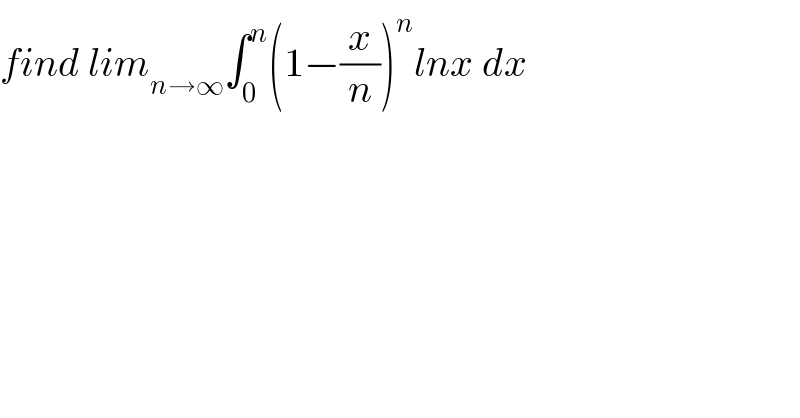
Previous in Relation and Functions Next in Relation and Functions
Question Number 133127 by abdomsup last updated on 19/Feb/21

$${find}\:{lim}_{{n}\rightarrow\infty} \int_{\mathrm{0}} ^{{n}} \left(\mathrm{1}−\frac{{x}}{{n}}\right)^{{n}} {lnx}\:{dx} \\ $$
Answered by Dwaipayan Shikari last updated on 19/Feb/21

$$\underset{{n}\rightarrow\infty} {\mathrm{lim}}\left(\mathrm{1}−\frac{{x}}{{n}}\right)^{{n}} ={e}^{−{x}} \\ $$$$=\underset{{n}\rightarrow\infty} {\mathrm{lim}}\int_{\mathrm{0}} ^{{n}} {e}^{−{x}} {log}\left({x}\right){dx}=\int_{\mathrm{0}} ^{\infty} {e}^{−{x}} {log}\left({x}\right){dx}=\Gamma'\left(\mathrm{1}\right)=\Gamma\left(\mathrm{1}\right)\psi\left(\mathrm{1}\right) \\ $$$$=−\gamma \\ $$
